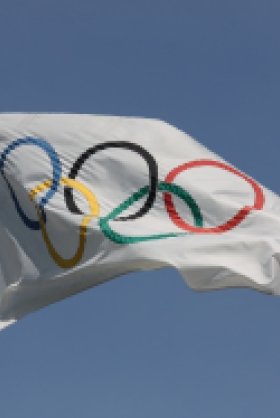The Soviets Navigate the Olympics: Troubled Waters


CWIHP e-Dossier No. 68
Documents Contributed by Mikhail Prozumenshikov and Introduced by Robert Edelman
The USSR joined the International Olympic Committee only in 1951. Until then they had disdained the Games as elitist and misogynistic. When they emerged the next year at the Helsinki Olympiad, they shocked the world by coming in a close second in the medal count. They then went on to dominate both the summer and winter Games in 1956. After that, Soviet sports officials dreamed of holding the Olympics in Moscow, but they got no traction with a party leadership that disdained sports. That attitude would change when Leonid Brezhnev and his colleagues ousted Nikita Khrushchev in 1964. The sports bureaucrats now found a willing audience in the new leadership.
The hope of a Moscow Olympiad required navigating the complex aristocratic world of the highest echelons of the Olympic movement, led by the arch anti-Communist Avery Brundage. The Soviets faced their first test of winning friends in 1966 when the question of the site for the 1972 Games was raised. As the documents below show, the leading candidates were Munich and Madrid. Each presented a problem. The leaders of the GDR put pressure on Moscow not to support the West German city. Yet, Madrid, the capital of Franco Spain, was anathema to all good Communists the world over. As can be seen here, the discussion at the highest Party levels was difficult. The decision to vote for Madrid was not taken lightly. The willingness of the Spanish Communist Party, led by "La Pasionaria," Dolores Ibárruri to support such a vote provided political cover.
This last fact, revealed here by Russia’s leading historian of sport Mikhail Prozumenshikov, was not previously known. In the course of the discussion among the top Party leadership, we can see profound ignorance of sport in general and the Olympic Movement in particular. Brezhnev had to convince his comrades of the importance of this highly popular human activity. The idea that Soviet sporting success was the direct result of orders and decisions taken at the top turns out to be a myth.
List of Documents
Source: RGANI f.4, op. 44, d. 1, l. 57.
Source: RGANI f.4, op. 20, d. 2, l. 82.
Source: RGANI f.4, op. 20, d. 2, ll. 80-81.
Source: RGANI f.4, op. 20, d. 2, l. 85.
Source: RGANI f.4, op. 20, d. 97, ll. 119-120.
Authors
Professor, University of California, San Diego

Cold War International History Project
The Cold War International History Project supports the full and prompt release of historical materials by governments on all sides of the Cold War. Read more




